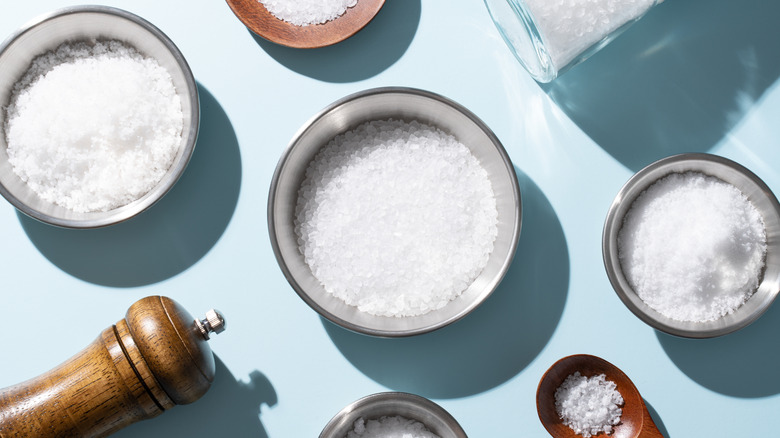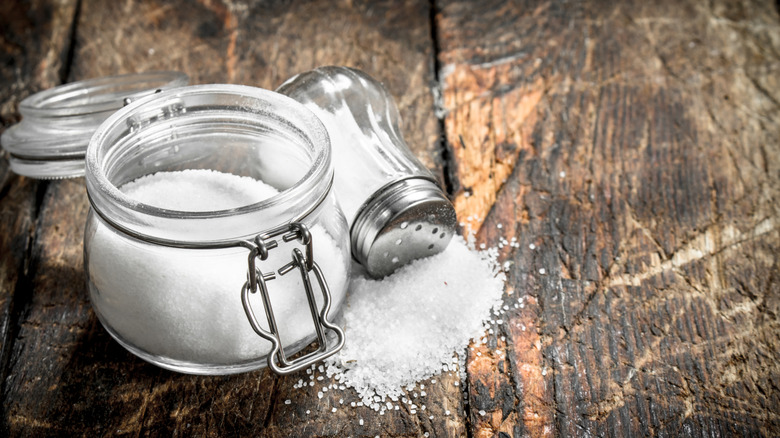Salt Doesn't Really Expire, But There Are Signs That You Should Throw It Out
There are many different types of salt, and several that you should always have in your pantry, but if all you keep are one or two kinds, we won't fault you because that's all the average home cook really needs. However, if you're doing a pantry clear-out, and you find a hidden container of salt that you haven't seen in years, you might be wondering if it has expired. The good news is that salt doesn't really expire, but it can show signs that it needs to be thrown out, and the most obvious is that it's clumping.
That's because salt sold commercially typically isn't just pure sodium chloride; it also tends to contain additives that keep it from caking. As time goes on, that ingredient can lose its effectiveness, leading to clumping.
But that's not the only sign that your salt has seen better days. If you find yourself needing to use more and more to make a seasoned salt stand out in your cooking, it could be that time has done its thing and the flavor is starting to dissipate. All told, most cooking salts retain their texture and flavor for up to five years – though it's important to note that just because the quality isn't what it once was, it doesn't mean the salt will make you sick if ingested.
The best method for storing salt
While you don't have to store salt in anything other than the packaging it came in, swapping out the container can nonetheless improve its longevity — especially if you don't go through it very quickly, or you bought some in bulk at a big box warehouse chain, so you'd always have it on hand. You'll want to keep it in an airtight container — not because it will go bad, but rather to keep air and moisture out, which can degrade the quality. Glass mason jars will do the trick, or any glass food storage container with an airtight lid is serviceable. Depending on how much you purchased, you could also keep it in a large plastic bucket with a snap-on lid, too.
It's not just what you keep it in, either; it's also where. Salt that isn't being kept in little pinch bowls for use around the kitchen should be kept out of direct sunlight and away from heat sources, including large appliances, like your stove or refrigerator, or heat vents. A cool, dry location like your pantry is best (though you might want to update your pantry shelving to store glass jars safely), but if you have a basement that remains consistently dry, that could also be a possible storage location.


